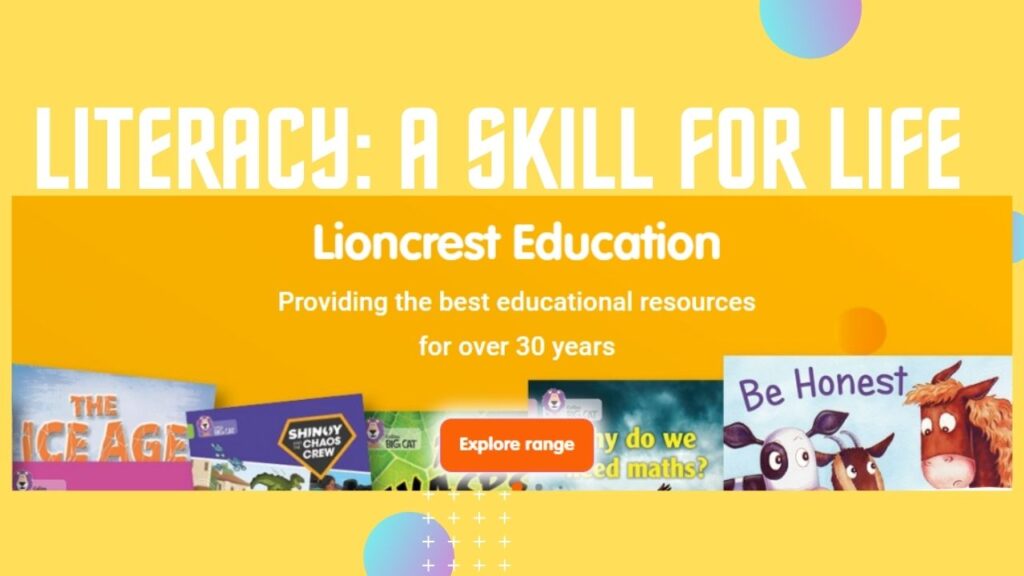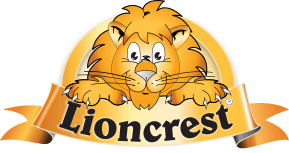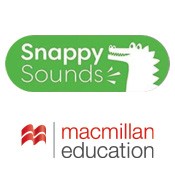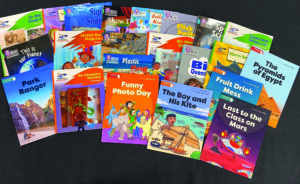
At Lioncrest Education, we believe that literacy is a foundation for success in all areas of life. That’s why we’re committed to providing the best educational resources to help students develop strong reading and writing skills. Our materials are designed to make learning enjoyable, interactive, and effective, so students can develop the literacy skills they need to thrive in today’s world and into the future.
A skill for life:
In the vast landscape of education, one skill stands tall as the cornerstone of all learning—literacy. From an early age, the journey of unlocking the magic of words and stories begins. In this blog, we delve into the profound importance of books in early education and how they lay the foundation for a lifelong love of learning.
The Gateway to Knowledge:
Books are not mere objects with pages and ink; they are gateways to new worlds, ideas, and knowledge. In the early years of school, children are introduced to the enchanting realm of storytelling. The colorful pages and whimsical characters serve as companions, sparking curiosity and imagination. As young minds eagerly flip through the pages, they are not just reading words but absorbing the essence of language and communication.
Building Blocks of Literacy:
Literacy is more than just the ability to read and write; it is the key to understanding, interpreting, and expressing oneself. Books in primary school play a pivotal role in laying the foundational blocks of literacy. From the basics of phonics to the nuances of grammar, every story, every sentence becomes a lesson. It’s in these formative years that the seeds of comprehension and communication are sown, and books become the nurturing soil.
Cultivating Critical Thinking:
Beyond the alphabets and vocabulary, books in primary school foster the growth of critical thinking skills. As children navigate through narratives, they encounter diverse perspectives, ethical dilemmas, and problem-solving scenarios. The characters they meet and the challenges they face serve as mirrors reflecting the complexities of the real world. In grappling with these literary dilemmas, young readers develop the ability to think critically, analyze situations, and make informed decisions.
Fueling Imagination and Creativity:
Primary school is a time when imagination knows no bounds. Books act as catalysts for this boundless creativity. Whether it’s a fantastical tale of mythical creatures or an adventure in a far-off galaxy, books open the door to infinite possibilities. As children immerse themselves in these imaginative worlds, they not only escape reality but also learn to envision, dream, and create—a skill that extends far beyond the pages of a storybook.
Challenges and Opportunities:
Results from NAPLAN tests* revealed that one in ten students need additional support in literacy (*from 2023 NAPLAN results). The data released by the Australian Curriculum, Assessment and Reporting Authority (ACARA) showed that nationally, around 10 percent of students are in the ‘needs additional support’ category. Across all year levels, around a third of Indigenous students ‘need additional support’.
This data underscores the crucial role that early literacy education plays in addressing disparities in learning outcomes. It highlights the need for targeted interventions and support systems to ensure that every child has the opportunity to unlock their full potential.
A Lifelong Love Affair:
The impact of books in primary school extends far beyond the classroom. A child who discovers the joy of reading early on is more likely to develop a lifelong love for books. This love affair with literature becomes a source of solace, inspiration, and continuous learning throughout one’s life. It transcends the boundaries of formal education, evolving into a personal journey of exploration and self-discovery.
In conclusion, literacy is undeniably a skill for life, and books in primary school serve as the guiding lights on this transformative journey. They shape not only academic success but also the very essence of what it means to be an informed, imaginative, and critically thinking individual. So, let’s celebrate the magic of books in primary education and embrace the profound impact they have on molding the minds and hearts of the future generation.



